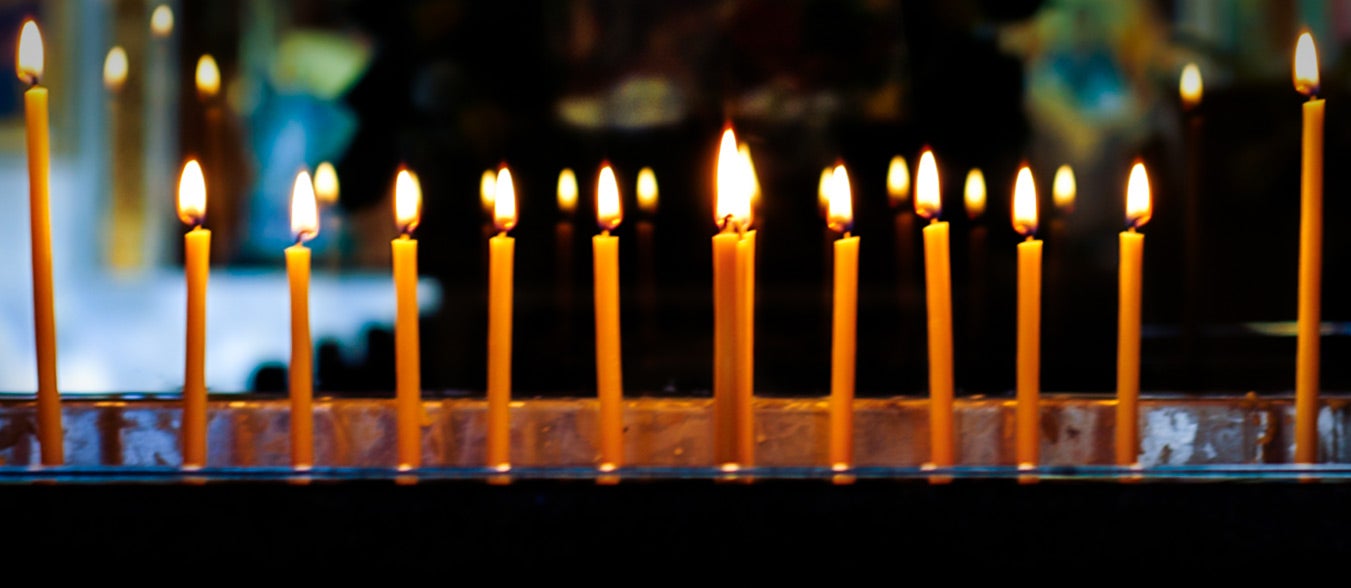OCF Celebrates College Student Sunday on August 25, 2024
08/22/2024
This Sunday, August 25, 2024, has been designated by the Assembly of Bishops as College Student Sunday.
Archbishop Elpidophoros of America Offers Benediction at the Democratic National Convention
08/21/2024
Tuesday, August 20, 2024, His Eminence Archbishop Elpidophoros of America delivered a benediction at the 2024 Democratic National Convention held in Chicago, Illinois.
St. Photios Greek Orthodox National Shrine Announces Second Annual St. Photios Indiction Lecture Series
08/20/2024
Join St. Photios Greek Orthodox National Shrine for an enlightening afternoon as they reflect on our spiritual and environmental responsibilities. Your presence will contribute to meaningful dialogue and the continued pursuit of Orthodox values in preserving our natural world.
Center for Family Care's Family Matters Podcast: "The Sabbath Was Made for Man: Why Rest, Respite, and Self-Care are Vital for Caregivers, Part 1"
08/20/2024
Matushka Carrie Foley shares personal lessons learned regarding the vitalness of self-care and times of refreshment for sustainable caregiving.
Department of Religious Education's Did You Know: The Difference Between Earthly and Heavenly Joy
08/20/2024
Did you know there is a difference between earthly and heavenly joy?
Ionian Village Completes 2024 Summer Camp Season
08/20/2024
Ionian Village just completed their 2024 Summer Camp season! During their time at IV, high-school students embarked on the summer of a lifetime in Greece, delving deep into their Greek Orthodox faith and Hellenic heritage.
Archbishop Elpidophoros Visits the Holy Monastery of Saint John Chrysostom in Kenosha, Wisconsin
08/20/2024
On Monday, August 19, His Eminence Archbishop Elpidophoros of America visited the Holy Monastery of Saint John Chrysostom in Kenosha, WI.
Metropolis of New Jersey Announces 2024 Annual Holy Cross Celebration Cross Dive
08/19/2024
The 2024 Annual Metropolis of New Jersey Holy Cross Celebration Cross Dive will take place at Deal Beach in Deal, New Jersey on Sunday, September 15.
Archbishop Elpidophoros Presides Over Divine Liturgy of Consecration at St. Nicholas Greek Orthodox Church in Ann Arbor, Michigan
08/19/2024
Following Saturday’s Great Vespers of Consecration, yesterday, August 18, 2024, His Eminence Archbishop Elpidophoros of America presided over the Divine Liturgy of Consecration for St. Nicholas Greek Orthodox Church in Ann Arbor, Michigan, celebrating alongside His Eminence Metropolitan Nicholas of Detroit and St. Nicholas parish priest Nicolaos Kotsis.
Archbishop Elpidophoros Presides Over Great Vespers of Consecration of Saint Nicholas Greek Orthodox Church in Ann Arbor, Michigan
08/18/2024
Yesterday evening, August 17, 2024, His Eminence Archbishop Elpidophoros of America presided over the Great Vespers of Consecration of Saint Nicholas Greek Orthodox Church in Ann Arbor, Michigan.
Consecration of St. Nicholas Church in Ann Arbor, MI
08/18/2024
His Eminence Archbishop Elpidophoros of America, arrived today, August 17, 2024 in Detroit, Michigan where he will preside at the Consecration Services of St. Nicholas Greek Orthodox Church in Ann Arbor, MI this weekend.










